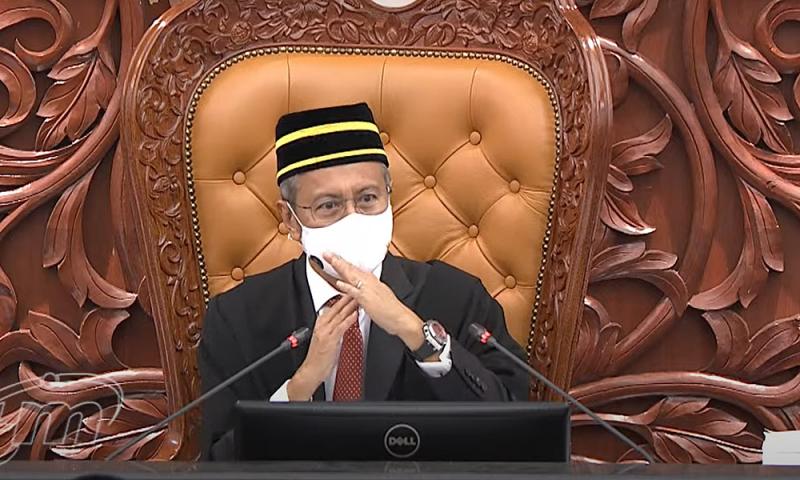MP SPEAKS | Speaker's 'sub judice' reason for rejecting Sulu debate untenable
MP SPEAKS | It is rather absurd for the Dewan Rakyat speaker to have unduly disallowed Kota Belud MP (Isnaraissah Munirah Majilis) to present, and in turn, debate her motion on the asset seizure of Petronas subsidiaries by purported heirs of the Sulu sultanate in Parliament.
After all, this issue has to do with Sabah and Isnaraissah is from Sabah. It goes without saying that she has every right and necessary interest to raise this relevant issue in Parliament. One does not have to be a rocket scientist to acknowledge her solemn right to raise the issue in the august house.
The Kota Belud MP filed three motions on the matter but all three were rejected by speaker Azhar Azizan Harun, hence the uproar this morning in Parliament.
If the speaker had allowed the motion to be properly presented and debated, the government would, in turn, have every right to reply to any points raised by her or other MPs.
That is, in essence, what parliamentary democracy is all about. There should be proper checks and balances which are the core values of democracy.
When the speaker told the house that the rejection of the motion was due to the rule of sub judice, I was indeed flabbergasted. We used to have our motions on 1MDB thrown away on this ground as well. Is history repeating itself again?
With due respect, I don’t think the principle of sub judice has been rightly and properly invoked by the speaker.
Yes, the rule of sub judice is primarily created in order to maintain and safeguard the administration of justice by preserving the sanctity of any legal trial in court.
Nevertheless, it was never intended to be used as a blanket ban on the fundamental right of freedom of speech, which is duly enshrined in our Federal Constitution.
The principle of sub judice would only apply when, and only when, the merits and demerits of any particular court case are touched upon by someone. It is ought to be sparingly applied and should only be used on a case-to-case basis.
In the context of parliamentary debates, the speaker may only restrict any MP from debating any particular legal dispute pending in court if, whilst debating, the MP discusses the merits and demerits of the case.
An omnibus ban ought not to be imposed, let alone arbitrarily invoked. Otherwise, the notion of freedom of speech and expression - duly guaranteed in the Federal Constitution - would be rendered meaningless and illusory.
Hitherto, one has difficulty understanding the speaker’s utter reluctance to allow the debate.
With due respect, such a reluctance merely engenders the following speculation, namely the government’s narrative might be totally different from that of former prime minister Najib Abdul Razak.
After all, Najib has been blaming the former attorney-general under the then Pakatan Harapan government on this issue.
MOHAMED HANIPA MAIDIN is Sepang MP.
The views expressed here are those of the author/contributor and do not necessarily represent the views of Malaysiakini.
RM12.50 / month
- Unlimited access to award-winning journalism
- Comment and share your opinions on all our articles
- Gift interesting stories to your friends
- Tax deductable
